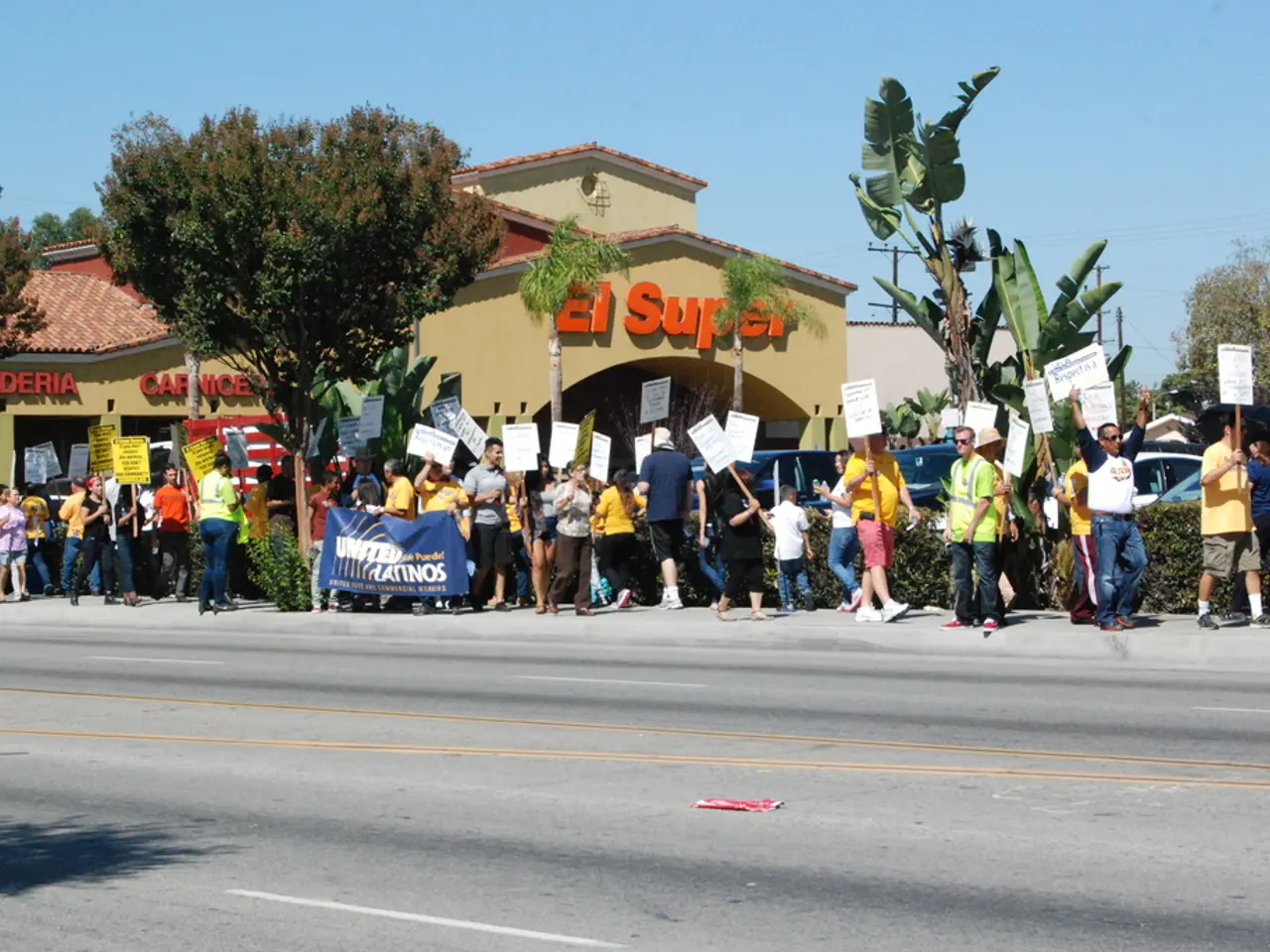Elon Musk unveils plans for a personal political group
Elon Musk, the world's richest person with an estimated net worth of $360 billion, has announced the launch of a new political party called the America Party [1][2][3]. The party, founded on the premise of giving power back to the people, comes as a significant turning point in Musk's feud with former President Donald Trump, following their public break in early June [1].
Musk frames the current political system as effectively a "one-party system" due to bipartisan support for wasteful spending and graft. He positions the America Party as a vehicle to restore true democratic choice and freedom to voters [1][2]. The party's objectives include challenging the two-party dominance, promoting government efficiency, and influencing key congressional seats [1][2].
Musk aims to focus on winning a small but critical number of seats in Congress, specifically targeting 2 or 3 Senate seats and 8 to 10 House districts [2]. By doing so, the America Party could potentially act as a powerful swing vote, enabling them to push for legislation that aligns more closely with voter interests and Musk’s ideals [2].
A July 4 social media poll conducted by Musk showed that over 60% of over 12 million respondents supported independence from the current two-party system, indicating significant public appetite for an alternative political force [1][2]. However, the party's ultimate impact will depend on its electoral success and ability to sustain voter support in a deeply polarized environment [1][2][3].
Although Musk has invested heavily in political efforts before, success is not guaranteed. The party will face the typical challenges new political movements face in gaining traction across the U.S. political landscape [1]. Despite not being able to become President due to being born in South Africa, Musk believes he has the power to significantly influence election outcomes at various levels.
Musk's role in the new party has not been specified, but his previous involvement in government, such as leading the cost-cutting committee, Doge, which implemented massive budget cuts and layoffs after Trump's inauguration, suggests a potentially active role [1]. If Musk becomes actively involved in politics, he could potentially become a direct rival to Trump.
Musk's disapproval of the large tax and spending bill signed by Trump, known as "One Big Beautiful Bill," further highlights his political stance [1]. Musk's support for Trump's campaign with over $250 million and his statement, "Without me, Trump would have lost the election," have added fuel to the fire in their ongoing feud [1].
In summary, the America Party represents Elon Musk’s effort to create a centrist or alternative political force focused on reducing government waste, ending the bipartisan "uniparty" dominance, and leveraging a few key congressional seats to influence legislation. Its impact on the political landscape remains to be seen.
- Elon Musk, the founder of the America Party, views the current political system as a "one-party system" due to bipartisan support for wasteful spending and graft, and positions his new party as a means to restore true democratic choice and freedom to voters.
- In line with its objectives, the America Party seeks to challenge the two-party dominance, promote government efficiency, and influence key congressional seats, potentially acting as a powerful swing vote and pushing for legislation that aligns more closely with voter interests and Musk’s ideals.
- To achieve these goals, Musk aims to focus on winning a small but critical number of seats in Congress, specifically targeting 2 or 3 Senate seats and 8 to 10 House districts, which could enable the party to significantly influence policy-and-legislation.
- A July 4 social media poll conducted by Musk indicated significant public appetite for an alternative political force, with over 60% of over 12 million respondents supporting independence from the current two-party system. However, the ultimate impact of the America Party will depend on its electoral success and ability to sustain voter support in a deeply polarized environment.







